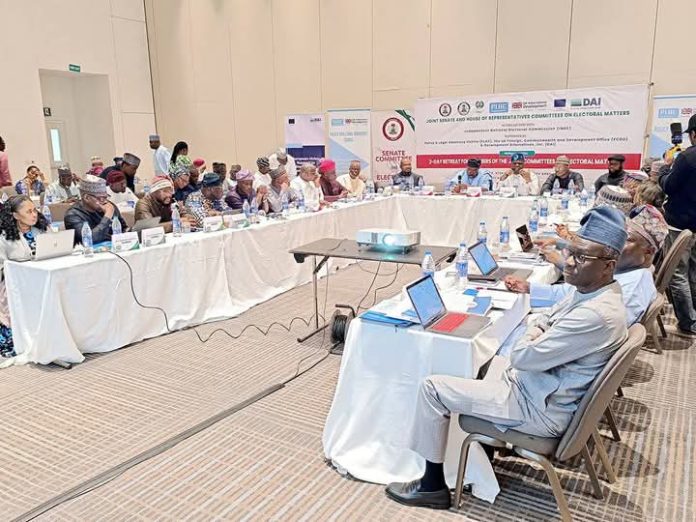Civil Society Organisations have raised concerns over an alleged plan to replace the Chairman of the Independent National Electoral Commission, Mahmood Yakubu, and six Resident Electoral Commissioners, with individuals believed to be loyal to the ruling party.
The alarm was raised on Tuesday during the Conference of Thought Leaders on Civic Space, Poverty and Elections, held in Abuja. The event was organised by the African Centre for Leadership, Strategy and Development, in collaboration with Women’s Rights Advancement and Protection Alternative.
Adele Jinadu, a professor of political science at the University of Lagos and former commissioner at the defunct National Electoral Commission, warned of a growing threat to INEC’s independence.
“In the next six months, by November, the present leadership of INEC will have to step aside,” Jinadu stated.
He added, “We need to be vigilant and prevent that from happening.”
Jinadu expressed concern over what he described as covert moves to infiltrate INEC with partisan individuals. “Those of us who have our ears on the ground, we know that process is going on now,” he said.
He added, “We have seen images already. The only way we can prevent this is by identifying those who are partisan politicians attempting to be appointed as INEC Commissioners.”
Jinadu stressed the importance of civil society vigilance in safeguarding the integrity of the electoral process as Nigeria moves towards the 2027 general elections.
Also speaking at the conference, Jibrin Ibrahim, Director of the Centre for Democracy and Development, urged citizens to resist manipulation of the electoral process.
“The first solution, as I said, is that we as Nigerians must mobilise ourselves to prevent our votes from being stolen,” Ibrahim stated.
He emphasised the importance of civic mobilisation, noting that legislative reforms alone would not be sufficient to guarantee electoral integrity.
“If we keep on appealing to them, they will just be laughing at us,” he said.
“We will pass a law, we will change the Constitution, but they will still keep behaving the way they are behaving,” Ibrahim added.
The concerns raised by the academics echo broader apprehensions among stakeholders regarding democratic processes in Nigeria.
Participants at the conference called for greater transparency in the appointment of INEC officials and urged the National Assembly to maintain oversight of the commission’s independence.
They also advocated for an inclusive and transparent process in selecting future INEC leadership to avoid erosion of public trust.
The African Centre for Leadership, Strategy and Development and WRAPA reiterated their commitment to ensuring the protection of civic space and electoral accountability.
The conference concluded with a call to action for civil society, media, and citizens to work together to uphold democratic standards in the lead-up to the 2027 elections.

